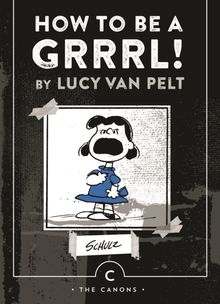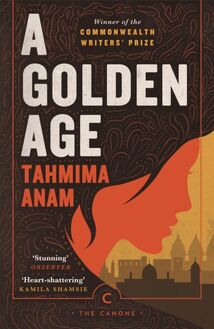People's Act Of Love , livre ebook
203
pages
English
Ebooks
2008
Vous pourrez modifier la taille du texte de cet ouvrage
Obtenez un accès à la bibliothèque pour le consulter en ligne En savoir plus
Découvre YouScribe en t'inscrivant gratuitement
Découvre YouScribe en t'inscrivant gratuitement
203
pages
English
Ebooks
2008
Vous pourrez modifier la taille du texte de cet ouvrage
Obtenez un accès à la bibliothèque pour le consulter en ligne En savoir plus
Publié par
Date de parution
20 novembre 2008
Nombre de lectures
0
EAN13
9781847673756
Langue
English
Poids de l'ouvrage
1 Mo
Publié par
Date de parution
20 novembre 2008
Nombre de lectures
0
EAN13
9781847673756
Langue
English
Poids de l'ouvrage
1 Mo
James Meek is the author of six novels including The People’s Act of Love which was longlisted for the Man Booker Prize and won both the Royal Society of Literature Ondaatje Prize and the Scottish Arts Council Award. It has been published in more than thirty countries. Meek’s latest novel The Heart Broke In was shortlisted for the Costa Book Award and he has also written two collections of short stories and a book of non-fiction, Private Island , which won the 2015 Orwell Prize. He is a Contributing Editor to the London Review of Books and writes regularly for the Guardian and New York Times . He lives in London.
Copyright
This Canons edition published in 2019 by Canongate Books
This digital edition published in 2019 by Canongate Books
First published in Great Britain in 2005 by Canongate Books Ltd, 14 High Street, Edinburgh, EH1 1TE
This digital edition first published in 2008 by Canongate Books Ltd
canongate.co.uk
Copyright © James Meek, 2005
The moral rights of the author have been asserted
British Library Cataloguing - in-Publication Data A catalogue record for this book is available on request from the British Library
ISBN 978 1 84767 375 6
– Busy remaking the world, man forgot to remake himself .
Andrei Platonov, Nursery Of The New Man
Contents
Samarin The Barber And The Berry Gatherer Mutz Balashov The Convict Anna Petrovna The Widow The Husband Matula The Tribunal The River The White Garden The Fields The Legion In Out Causes The Avakhi Songs The Reds Cannibals In Dark Heaven At Mutz’s Execution The Locomotive The Nature Of The Burden Declarations Samarin’s Request Tripping The Demons The Gift Horse Among The Worlds Acknowledgements And Notes Author Interview
Samarin
W hen Kyrill Ivanovich Samarin was twelve, years before he would catch, among the scent of textbooks and cologne in a girl’s satchel, the distinct odour of dynamite, he demanded that his uncle let him change his second name. He didn’t want to be ‘Ivanovich’ any more. The Ivan from whom the patronymic came, his father, had died when he was two, soon after his mother, and he had lived with his uncle ever since. His uncle’s name was Pavel; why couldn’t he be called Kyrill Pavlovich? When his uncle told him he couldn’t change it, that this was the way things were done, that dead fathers had rights and required respect, the boy went into angry silence, pressed his lips together and looked away, breathing loudly in and out through his nose. His uncle knew these signs. He would see them every few months, when one of the boy’s friends let him down, or when he was told to put his reading lamp out and sleep, or when he tried to stop his uncle punishing a servant.
What the boy did next was not familiar. He looked at his guardian and grinned, and began to laugh. The effect of the boy’s deep brown eyes looking up into his uncle’s, together with that laugh, not a man’s yet – the boy’s voice hadn’t broken – but not a child’s either was unsettling. ‘Uncle Pavel,’ said the boy. ‘Could you call me just “Samarin” from now on, until the time when I can choose my own names?’
So the twelve-year-old came to be called, at home at least, by his family name alone, as if he were living in a barracks. The uncle was fond of his nephew. He spoiled him when he could, although Samarin was hard to spoil.
Samarin’s uncle had no children of his own, and was so shy in the presence of women that it was difficult to tell whether he liked them or not. He had little rank to speak of, and a large fortune. He was an architect and builder, one of those charmed individuals whose practical usefulness transcends any amount of snobbery, corruption and stupidity in the powers on whose patronage they depend. As Samarin grew up, people in Raduga, the town on the Volga where he and his uncle lived, stopped thinking of him as an unfortunate orphan and began to refer to him as schastlivchik, the lucky one.
It didn’t harm the good name of Samarin’s uncle among the conservative gentry that he took no interest in politics. No circle of chattering liberals met at his town house, he didn’t subscribe to St Petersburg periodicals, and he refused to join reform societies. Reformers would keep asking him to sign up, all the same. He hadn’t always been aloof from causes. In the mad summer of 1874, long before Samarin was born, his uncle had been one of the students who went like missionaries among the peasants in the villages, urging them to rebellion. The peasants had no idea what the students were talking about, suspected they were being mocked, and asked them, with embarrassed whispers and some jostling, to leave. Samarin’s uncle was fortunate to escape exile in Siberia. He never recovered his lost pride. Once a month he would compose a long letter to a woman he had met in those days, who now lived in Finland, and, just before posting it, he would burn it.
Samarin seemed to take after his uncle in politics, though not in his dealings with women. He went through school and on to the local university, where he enrolled as an engineer, without joining any of the debating societies or discussion clubs or semi-underground Marxist circles populated by the radical students. Nor did he enjoy drill, or mix with the militant anti-semites who would loiter on the university steps, gawking at hooknosed, bloodsucking Jewish caricatures in pedlars’ chap-books. He read widely – his uncle would buy him any book he wanted, in any language – went to dances and, in his late teens, took long summer trips to St Petersburg. When a friend asked him about luggage labels in German, French and English on his travelling trunk, he smiled and said that buying the labels was much cheaper than actually travelling abroad. He had a great many friends, or rather a great many students counted him as a friend, even though, had they stopped to think about it, most of them would have been able to count the hours they’d spent with him on the fingers of one hand. Women liked him because he danced well, didn’t try to get drunk as quickly as possible when the means were to hand, and listened with sincere interest when they talked. He had a way of devoting attention absolutely to one woman, which not only pleased her during their conversation, but left her with the feeling afterwards that the time they’d spent – no matter how brief, and usually it was brief – was time offered to her from a precious store, time which could and should have been used by Samarin to continue a great task. The fact that nobody knew what this great task was only intensified the feeling. Besides, he dressed well, he stood to inherit a large estate, he was clever, and everything about him, his wit, his strength, even his looks – he was tall, a little gaunt, with thick collar-length brown hair and eyes that shifted between serene remoteness and a sudden sharp focus – suggested a man holding himself back from revealing his full self out of consideration for the less gifted around him.
The voices which spoke of alternative Samarins never gained a patient hearing, not because they were thought to be motivated by envy, but because their slanders were deemed too obscure. They were received like the small paragraphs in newspapers reporting bizarre happenings in other small provincial towns similar to Raduga (though never in Raduga): they were read with interest, but not believed, let alone acted on. There was the story of how somebody had seen Samarin and his uncle walking together when the nephew was fifteen, and how it had been the nephew talking, gesturing as if explaining something, and the grey-haired uncle who was listening, silent, nodding, hands behind his back, almost respectful. In those days there was unrest in the countryside. Manor houses were being burned down by peasants angry at the compensation they still owed landowners for the privilege of being freed from serfdom forty years earlier. Samarin’s uncle would be called on to supervise the reconstruction of the manor. He would take Samarin with him to visit the families of the burned-out gentry. What one witness said, and it was only his word against everyone else’s, was that he had overheard uncle and nephew together after one such visit, to a family of the most minor nobility, who had lost everything, and that the two of them had been laughing about it. ‘I heard the boy laugh first, and then the uncle joined in!’ So the witness said.
In 1910, when he was 21, Samarin began spending time with Yekaterina Mikhailovna Orlova – Katya – a student in his class and the daughter of the rector of the university. They went for walks together; they talked in the corner at parties; they danced. One day in early spring, Katya’s father ordered that the relationship end. Samarin had humiliated him, he said, during his annual address to final year students. When Orlov had talked about how fortunate the students were to be young in an era when Russia was becoming a wealthy, enlightened democracy, Samarin had started to laugh. ‘Not a snigger, or a chuckle,’ said Orlov. ‘A great roaring, bellowing laugh, like a savage beast in our academic groves.’
There was a holiday, and Orlov took his daughter to the country house of one of the university’s patrons. Samarin found out that another student had arranged to meet Katya in the grounds of the house, to read her his poetry. Samarin persuaded the student that they should go together to the gates of the estate. Samarin warned him that Katya preferred men to be dressed in light-coloured clothes. Not long after the two men set out along the country road to the house, Samarin on a bicycle and the other on a horse, there was an unusual accident. The horse, normally docile, threw the poet, just as they were passing an area of deep, wet mud. The poet’s white suit and beige English raincoat were covered in dirt, and he hurt his ankle. Samarin helped him onto his mou














